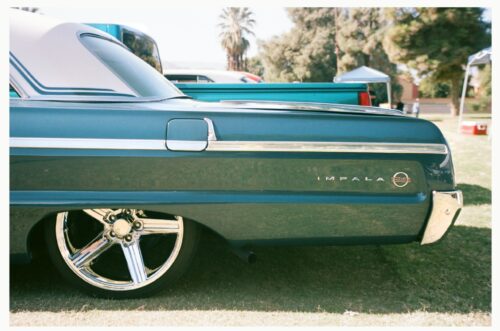 How long do Chevrolet brake rotors & pads last?
How long do Chevrolet brake rotors & pads last?
Several factors influence the life of your rotors and pads. The material the parts are constructed of, for example. If you have ceramic components installed, they will last longer. Economy parts will wear out sooner. If you drive like you are qualifying for the Indy 500, your brakes will not last very long. An Impala loaded to the max will wear out its brakes sooner than one with only the driver on board. Chevrolet brake pads need replacement every 40,000 – 50,000 miles depending on these considerations.
How about replacing only the brake pads or only the brakes on one wheel?
Rotors last longer than pads, but you should replace them together. New brake pads may not engage well with worn rotors. The old pads left substances on the rotors. These remains may result in the new brake pads unevenly bedding in. You may need a thorough brake job sooner than you were expecting. To prevent uneven braking, replace both sets of brakes on each axle. Front brakes do nearly all the braking; expect to exchange them before the rears wear out.
How do I know if a brake inspection or fluid flush for my Impala is warranted?
It’s good practice to have your brake system inspected by an expert mechanic to spot issues before they cause damage to your Impala brake system. Regular inspections will prevent developing problems from becoming safety-endangering.
Regular fluid flushes can prevent costly repairs. To avoid water and contamination from adversely affecting brake components, get a brake fluid flush and fill every two years for your Impala.
Chevrolet recommends tire rotations every 5,000-7,500 miles, a good time for a brake inspection. During a brake inspection, we will ensure you are safe out on the road by checking all wear items.
How can you tell if brake rotors or pads changing?
Schedule your appointment if you experience any of the following:
- The brake pedal sinks closer to the floor than usual or needs more force than usual
- Unusual vibrations, shaking, or noises occur during braking
- Your car is wobbling or rocking
- Your dashboard Brake Warning Light comes on
- You have grinding, squeaking, or squealing brakes
- Your vehicle doesn’t stay straight when you brake, pulling in either direction
- It takes longer to stop than normal
- Brake inspections are recommended once a year. Alternating tire rotations is about right.
What will my brake service include?
Depending on the results of the inspection, your brake service may include the following:
- Brake pad Replacement
- New Brake Rotors / Brake Drums Resurfaced
- Brake Fluid Flush & Brake Fluid Replacement
- Brake Rotor & Brake Caliper Alignment
- Brake Caliper Replacement
- New Brake Hoses/Brake Lines
- Brake Master Cylinder Replacement
When it’s slippery out, the ABS and stability control assist you to maintain control. They are inoperative lacking communication from the wheel speed sensors. While conducting a brake inspection on your Impala, our mechanic will test these vital sensors. Our ASE-trained mechanic will hone your emergency brakes to factory specifications. The service is complete after a road test to confirm that your Chevrolet conforms to factory specifications.
